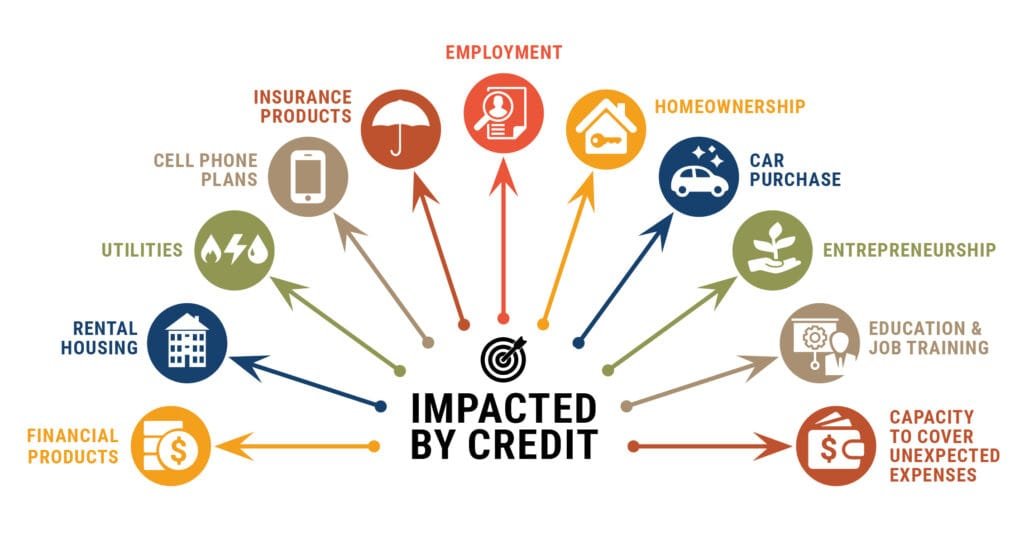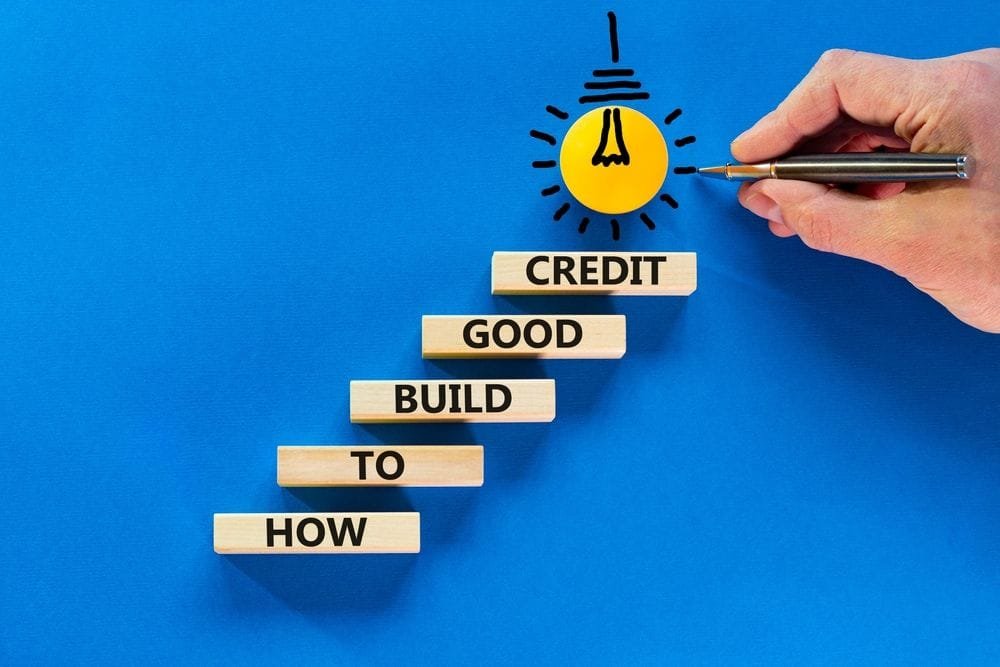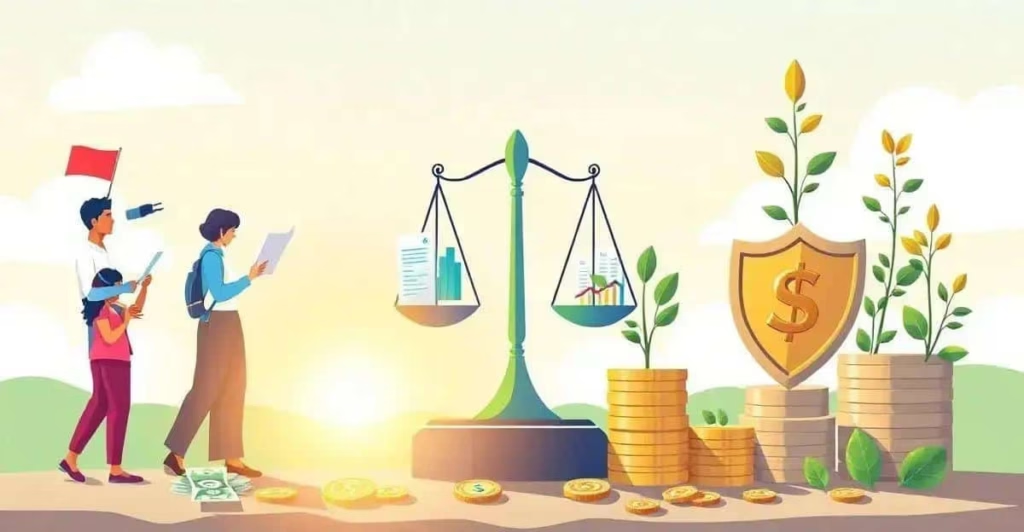Want to know the secret to build credit fast? It’s not just about making timely payments, although that’s crucial.
Building credit requires a combination of smart financial decisions, a solid understanding of how scores work, and a bit of patience.
In this comprehensive guide, we’ll walk you through the steps to enhance credit quickly and effectively, covering everything from understanding scores to maintaining a good credit score.

Building Credit from Scratch
Starting from zero can feel daunting, but building credit from scratch is entirely possible with the right strategy. The first step is to open a secured credit card or become an authorized user on someone else’s credit account. These options provide a way to establish a credit history without requiring an existing score.
Making consistent, on-time payments is key. Even small purchases paid off promptly can have a positive impact. Keeping utilization low—preferably below 30%—is equally important. Consider credit-builder loans or acting as a co-signer for another’s loan to diversify your history. Over time, these actions lay a strong foundation for your financial future.

Understanding Credit Scores
Credit scores are calculated using several factors, each contributing to your overall score. Payment history accounts for 35% of the score, making it the most significant factor. Next is credit utilization, which reflects the percentage of available credit you’re using.
The length of your credit history is also important. A longer history of responsible credit use generally results in a higher score. Additionally, having a mix of credit types—like credit cards, personal loans, and mortgages—shows lenders that you can handle various financial responsibilities.
Regularly monitoring your credit report helps you stay on top of your score. Look for discrepancies and dispute errors to ensure your score accurately reflects your financial habits. By understanding these components, you can take targeted steps to improve your credit health.
How Age of Credit Accounts Affects Your Score
The age of your credit accounts contributes to 15% of your score, emphasizing the importance of maintaining older accounts. Lenders prefer borrowers with a long credit history, as it demonstrates reliability over time. Closing old accounts can reduce your average account age and negatively impact your score. Even if you no longer use a card frequently, consider keeping it open to preserve your history. Responsible management of these accounts can lead to better lending terms and higher scores.
The Importance of Payment History
Payment history is the most significant factor affecting your credit score, accounting for 35% of the FICO scoring model. This means paying bills on time should be a top priority. Missed or late payments can stay on your credit report for up to seven years, significantly lowering your score. Set up automatic payments or reminders to ensure consistency. Even if you’re working to pay off debt, keeping up with minimum payments is essential to avoid negative marks. Establishing a positive payment history can lay a strong foundation for improving credit over time.
Types of Credit
Credit comes in several forms, each with unique features. Revolving credit, such as credit cards, allows you to borrow and repay funds as needed within your credit limit. Installment credit, like personal loans or car loans, involves borrowing a fixed amount and repaying it over a set term.
Open-end credit, such as home equity lines of credit (HELOCs), lets you borrow and repay multiple times within an agreed limit. Diversifying your credit mix can positively impact your credit score. This variety demonstrates to lenders that you’re capable of managing different types of financial obligations responsibly.
The Influence of Credit Mix on Your Score
Your credit mix, or the variety of credit accounts you have, makes up 10% of your score. Lenders prefer to see a balance between installment credit, such as loans, and revolving credit, like credit cards. This diversity demonstrates your ability to manage different types of credit responsibly. While it’s not advisable to open accounts solely to diversify your credit mix, gradually adding a mix of products as needed can contribute positively to your score. Always prioritize manageable debt and avoid overextending your finances.
How Debt Impacts Credit Utilization
Debt plays a critical role in your credit utilization ratio, which accounts for 30% of your score. This ratio is the percentage of your available credit currently in use. For example, if you have a $10,000 credit limit and a $3,000 balance, your utilization rate is 30%. Financial experts recommend keeping this ratio below 30% to maintain a healthy score. Paying off debt gradually can help lower this percentage. If possible, aim to spread balances across multiple cards or increase your credit limit responsibly to improve this factor.
The Power of Debt Consolidation
Debt consolidation can simplify managing multiple debts and improve your credit score over time. By combining debts into one loan with a lower interest rate, you can reduce monthly payments and pay off balances faster. This approach can also help lower your credit utilization ratio if done correctly. However, it’s crucial to avoid accumulating new debt after consolidation. Choose reputable lenders and carefully review terms to ensure this strategy aligns with your financial goals.
Building Credit with Credit Cards
Credit cards can be a powerful tool for building credit if used wisely. Start by applying for a secured card or one designed for individuals with limited credit history. These cards often require a deposit but can help you establish credit over time.
Always pay your balance in full and on time. Late payments can significantly harm your score, while paying on time demonstrates reliability. Keep your utilization below 30% to show lenders that you’re not over-reliant on borrowed funds.
If possible, become an authorized user on someone else’s credit card. This allows you to benefit from their good habits, potentially boosting your score without requiring you to apply for credit independently.
Benefits of Being an Authorized User
Becoming an authorized user on someone else’s credit account is a quick way to enhance credit. As an authorized user, you can benefit from the account holder’s positive payment history and low credit utilization without being responsible for the debt. This strategy is especially useful for those with limited or no credit history. However, ensure the primary account holder practices responsible credit management, as any negative marks on their account will affect your score too. It’s an excellent opportunity to establish credit while minimizing financial risks.
Removing Negative Marks
Negative marks on your credit report can be discouraging, but they’re not permanent. Start by obtaining a copy of your report from one of the major bureaus. Check for errors or inaccuracies, as these can unfairly lower your score. Disputing inaccuracies can result in their removal.
For legitimate negative marks, consider sending a goodwill letter to the creditor. This is a polite request to remove a mark as a gesture of goodwill. If this doesn’t work, negotiate with creditors to settle outstanding debts. Once resolved, ask them to update your account status to reflect the positive change.
Building new, positive credit habits is also crucial. While negative marks may take time to fade, consistent on-time payments and low credit utilization can offset their impact, leading to an overall improvement in your score.
The Role of Credit Counseling Services
Credit counseling services can be a lifeline for individuals struggling with debt and poor credit. These services provide expert advice on managing finances, consolidating debt, and creating repayment plans. Nonprofit organizations often offer free or low-cost counseling to help you regain control of your financial health. While these programs won’t directly improve your score overnight, they can set you on a sustainable path toward better credit management. Choosing a reputable counseling service is critical to ensuring effective guidance and avoiding scams.
Using Credit Monitoring Tools
Credit monitoring tools can help you track your credit score and identify potential fraud. Many services offer real-time alerts for changes in your report, such as new accounts, hard inquiries, or changes in balances. These tools provide valuable insights into your credit health and areas for improvement. Some are free, while others require a subscription, but the investment can be worthwhile. By staying informed about your status, you can take timely action to correct inaccuracies or address potential issues before they escalate.

Maintaining a Good Credit Score
Achieving a good score is only part of the journey; maintaining it requires ongoing effort. Regularly review your report to ensure all information is accurate and up to date. Set financial goals, like paying off debt or saving for an emergency fund, to stay motivated.
Avoid making late payments, as they can quickly lower your score. Keeping your credit utilization ratio low—ideally below 30%—is another critical factor. Additionally, limit the number of new credit accounts you open in a short period. Too many applications can signal financial distress to lenders.
Impact of Hard and Soft Inquiries
Credit inquiries can impact your score differently depending on whether they are hard or soft inquiries. Hard inquiries occur when a lender checks your credit for a loan or card application and may lower your score temporarily. Too many hard inquiries within a short period can signal financial instability. Soft inquiries, such as checking your own credit or being pre-approved for an offer, don’t affect your score. Space out applications for new credit to minimize the impact of hard inquiries and maintain a stable score.
Understanding Credit Utilization
Credit utilization measures how much of your available credit you’re using. It’s a key factor in determining your score, making up about 30% of the calculation. Keeping this ratio low signals to lenders that you’re managing your responsibly.
To calculate your credit utilization, divide your total card balances by your total limits. For example, if you have $1,000 in balances and $5,000 in credit limits, your utilization rate is 20%.
Strategies to lower your utilization include paying off balances more frequently or requesting a credit limit increase. Both actions can help improve your score over time.
The Role of Credit History
Your credit history length plays a significant role in your score. Lenders prefer borrowers with a longer track record of responsible credit use. Closing old accounts can shorten your credit history, so think carefully before doing so.
Even if you don’t use certain credit cards often, keeping them open can help maintain the length of your history. Setting up small, recurring charges on these accounts ensures they remain active without leading to high balances.
Credit Monitoring Tools
Many financial institutions and third-party services offer monitoring tools. These tools can alert you to changes in your report, such as new accounts or potential errors. Staying informed helps you address issues quickly before they impact your score.
Some monitoring services are free, while others require a subscription. Weigh the benefits against the costs to decide which option suits your needs best. Using these tools can help you stay proactive in managing your credit.
Financial Education
Educating yourself about credit is a long-term investment in your financial health. Understand the terms and conditions of any credit product before applying. Knowing how interest rates and fees work can prevent costly mistakes.
Many online resources and community programs offer free financial education. Take advantage of these opportunities to improve your understanding of credit and money management.
Emergencies and Credit
Financial emergencies can strain your credit if not managed carefully. Building an emergency fund can help you avoid relying on credit during tough times. Even a small fund can provide a cushion against unexpected expenses.
If you must use credit during an emergency, plan a repayment strategy to minimize long-term impact. Prioritize paying down high-interest debt first to reduce overall costs.

Building Credit Over Time
Credit improvement doesn’t happen overnight. It requires consistency and patience. Celebrate small milestones, like paying off a card balance or reaching a new score tier. These achievements reflect your progress and can motivate you to continue.
Set reminders for bill payments and monitor your report regularly. Over time, these habits will become second nature, helping you maintain a strong profile.
Leveraging Financial Tools
Take advantage of financial tools like budgeting apps and credit score simulators. These tools provide insights into your spending and how different actions might impact your score. For example, a simulator can show how paying off a debt or increasing your limit could improve your score.
By incorporating these tools into your routine, you can make more informed decisions about your credit and overall financial health.
Conclusion
Building credit while managing debt is not only possible but essential for long-term financial stability. By understanding how scores work and implementing responsible financial habits, you can improve your profile and gain access to better financial opportunities. Consistency is key, as positive credit behavior over time leads to sustainable growth in your creditworthiness.
Leveraging tools like secured credit cards, credit-builder loans, and strategic debt consolidation can accelerate your journey to a stronger credit score. Monitoring your credit regularly and addressing inaccuracies promptly will also help ensure your progress stays on track. It’s important to stay disciplined, avoiding the pitfalls of overspending or taking on unnecessary debt.
Ultimately, the journey to better credit is a marathon, not a sprint. The small, consistent steps you take today—such as on-time payments, low credit utilization, and building a diverse credit mix—lay the foundation for a robust financial future. By committing to these strategies, you can achieve your credit goals and enjoy the benefits of financial freedom.
FAQ: Frequently Asked Questions about Credit and Financial Health
What is the best way to build credit from scratch?
Building credit from scratch requires making smart financial decisions and using credit responsibly. Start by opening a secured card or becoming an authorized user on someone else’s credit account. Make timely payments and keepcredit utilization low to demonstrate responsible credit behavior.
How do I understand my credit score?
Your score is calculated based on various factors, including payment history, utilization, length of history, and credit mix. You can obtain a copy of your report and score from a reputable reporting agency.
What are the different types of credit?
There are several types of credit, including revolving credit, installment credit, and open-end credit. Revolving credit allows you to borrow and repay funds as needed, while installment credit involves borrowing a lump sum and repaying it over a set period.
How do I enhance credit with credit cards?
Building credit with credit cards requires using them responsibly and making timely payments. Consider applying for a secured card or a card with a low limit to start building credit.
How do I remove negative marks from my credit report?
Removing negative marks from your credit report requires a combination of patience and persistence. Obtain a copy of your report and dispute any errors or inaccuracies. You can also consider sending a goodwill letter to your creditors to request that they remove negative marks.
How do I maintain a good credit score?
Maintaining a good score requires ongoing effort and attention. Monitor your credit report and score regularly, and take steps to achieve a higher score by setting financial goals, avoiding late payments, and keeping utilization low.
Source: Yahoo!Finance | Related articles: Linkedin / Tumblr




